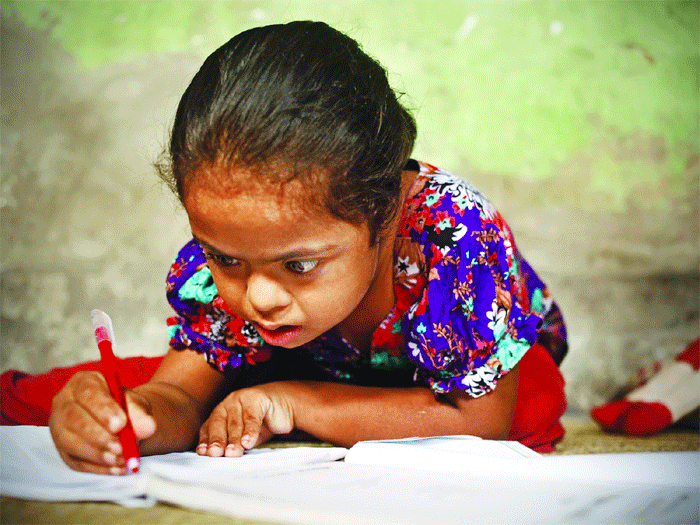Intellectual disabilities do not form a part of diagnostic criteria in children with autism, writes Surabhi Verma
The term Autism Spectrum Disorder is relatively new in our society, although it has existed for many years. Children with autism struggle to manage their daily routine. For a long time they were considered to be careless, adamant, irresponsible, and lazy. About 10 years ago, most people would have considered autism to be a fancy name for mental retardation, and unfortunately many professionals and people still consider it the same.
Did you notice your child shying away from social interactions at an early age or having difficulty learning languageIJ Did you note your child having trouble making eye contact while conversing or making repetitive behavioural actionsIJ These little signs, which are usually overlooked during early childhood, can be early indicators of a bigger issue which the child might be facing.
What is autismIJ
Autism is a neuro-developmental disorder which affects the three main areas of development usually referred to as Triad of Impairments:
· Social interaction and understanding.
· All aspects of communication — verbal and non-verbal.
· Flexibility of thinking and behaviour, including problems with imagination.
Though basic features are common in many children, it is important to remember the fact that autism is a spectrum disorder — no two (or 10 or 20) children with autism will be completely alike. Every child will be at a different point on the spectrum. Similarly, each child’s development would be at a different rate and the severity of each area would also differ. Thus a child’s chronological age may be four but he/she may function at three years when it comes to their language and 1.5 years with regard to his/her social skills. It is also possible that their cognitive skills may be age appropriate at four years. Thus one may not find uniform development in all areas for a child with autism.
Many children with autism would have intellectual disabilities, but many may have average to above average
IQ as well. Thus intellectual disabilities do not form a part of diagnostic criteria in children with autism.
Aspergers Syndrome is a form of autism in which the person/child has average or above average intelligence. They have fewer problems with speech but may still have difficulties with understanding and processing language. People with autism may also experience over- or under-sensitivity to sounds, touch, tastes, smells, light or colours.
Some people with autism are able to live relatively independent lives but others may have accompanying learning disabilities and would need a lifetime of specialist support.
What is intellectual disabilityIJ
Intellectual disability, which was earlier known as mental retardation (MR), is characterised by below average intelligence or mental ability and a lack of skills necessary for day-to-day living.
Children with intellectual disabilities can and do learn new skills, but they learn them more slowly. They tend to function at a level which is below their actual age and the functioning level will depend on the mental level at which the child is functioning. The degree of intellectual disability varies from mild to profound.
A child with intellectual disability has limitations in these areas:
· Intellectual functioning refers to a child’s ability to learn reason, make decisions, and solve problems.
· Adaptive behaviours. These are skills necessary for day-to-day life, such as being able to communicate effectively, interact with others, and take care of oneself.
Children with intellectual disability learn more slowly than a typical child. Children may take longer to learn language, develop social skills, and take care of their personal needs, such as dressing or eating. learning will take them longer, require more repetition, and skills may need to be adapted to their learning levels. Nevertheless, virtually every child is able to learn, develop and become a participating member of the community.
IQ (intelligence quotient) is measured by an IQ test. The average IQ is 100, with the majority of people scoring between 85 and 115. A child is considered intellectually disabled if he or she has an IQ of less than 70 to 75. There can be varying degrees of intellectual disability ranging from mild to severe.
In early childhood, mild intellectual disability (IQ 50-69) may not be identified until the child begins school. Even when the child is having poor academic performance, it may take expert assessment to identify mild intellectual disability. People with mild intellectual disability are capable of learning reading and Mathematics skills to approximately the level of a typical child.
Moderate intellectual disability (IQ 35-49) is visible within the first years of life. Speech delays are particularly common signs of moderate intellectual disability. People with moderate intellectual disability need considerable support in school, at home, and socially. While their academic potential is limited, they can learn simple tasks related to daily living and do simple activities.
People with severe intellectual disability need more intensive support and supervision their entire lives. They may learn some activities of daily living. Some require full-time care by an attendant.
The writer is the Founder and Director, Sparsh for Children


























